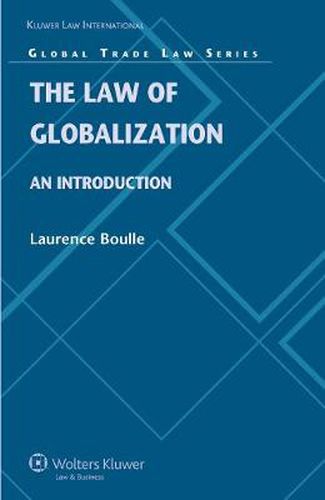Readings Newsletter
Become a Readings Member to make your shopping experience even easier.
Sign in or sign up for free!
You’re not far away from qualifying for FREE standard shipping within Australia
You’ve qualified for FREE standard shipping within Australia
The cart is loading…






This title is printed to order. This book may have been self-published. If so, we cannot guarantee the quality of the content. In the main most books will have gone through the editing process however some may not. We therefore suggest that you be aware of this before ordering this book. If in doubt check either the author or publisher’s details as we are unable to accept any returns unless they are faulty. Please contact us if you have any questions.
There is a growing clamor - particularly from the main beneficiaries of globalization - that rules need to be established to govern the international economy, with a specific focus on questions such as copyright violations, trade sanctions, and protections for increased foreign investment. While there is little doubt that globalization is a major contributor to changes in the definition, boundaries and nature of law, the question remains as to how much law and regulation from different sources is compatible with the assumptions of economic globalization. From a market perspective the point at which state law and regulation move from ‘legitimate’ non-economic interests into the ‘illegitimate’ restriction of trade and investment will materialize much sooner than it will from other perspectives. These theoretical questions arise in concrete form for the decisions of international economic institutions such as the WTO. This thoughtful work focuses on the different forms of law which create the legal infrastructure of economic globalization and on how they interact with one another. It also explains how law is used both to maintain and oppose aspects of globalization. In addition it evaluates the governance of the global political economy in terms of the standards of the Rule of Law.
$9.00 standard shipping within Australia
FREE standard shipping within Australia for orders over $100.00
Express & International shipping calculated at checkout
This title is printed to order. This book may have been self-published. If so, we cannot guarantee the quality of the content. In the main most books will have gone through the editing process however some may not. We therefore suggest that you be aware of this before ordering this book. If in doubt check either the author or publisher’s details as we are unable to accept any returns unless they are faulty. Please contact us if you have any questions.
There is a growing clamor - particularly from the main beneficiaries of globalization - that rules need to be established to govern the international economy, with a specific focus on questions such as copyright violations, trade sanctions, and protections for increased foreign investment. While there is little doubt that globalization is a major contributor to changes in the definition, boundaries and nature of law, the question remains as to how much law and regulation from different sources is compatible with the assumptions of economic globalization. From a market perspective the point at which state law and regulation move from ‘legitimate’ non-economic interests into the ‘illegitimate’ restriction of trade and investment will materialize much sooner than it will from other perspectives. These theoretical questions arise in concrete form for the decisions of international economic institutions such as the WTO. This thoughtful work focuses on the different forms of law which create the legal infrastructure of economic globalization and on how they interact with one another. It also explains how law is used both to maintain and oppose aspects of globalization. In addition it evaluates the governance of the global political economy in terms of the standards of the Rule of Law.